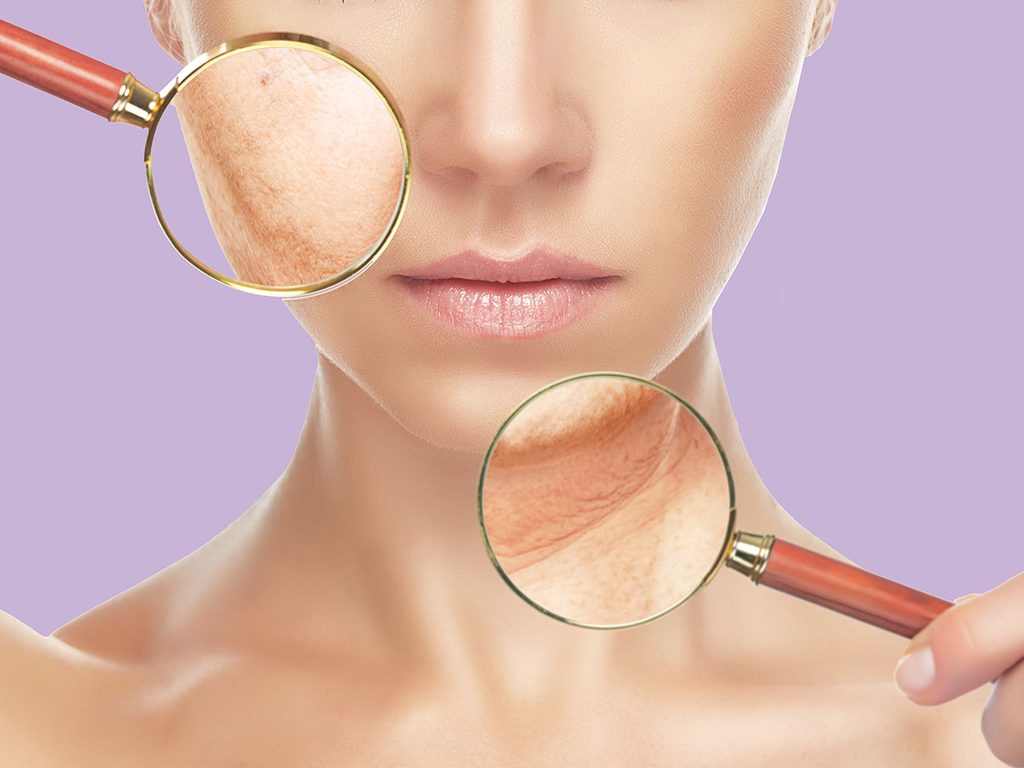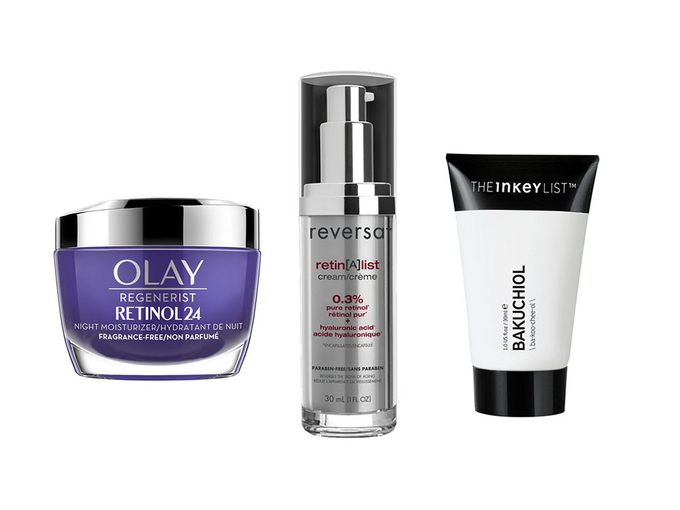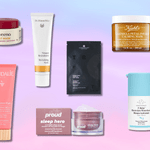The Latest Aging-Well Products You Need to Know About

Here's how to upgrade your skincare routine with the latest products that target skin concerns.
Retinol? Retinal? Retinyl? Chances are, you’ve heard of one of these vitamin A derivatives (collectively known as retinoids) because they’re favoured among skincare experts. “Retinol is the top anti-aging ingredient, and there are many reasons why I love it,” says Dr. Chantal Chiasson, a dermatologist and founder of Figurra Institute in Dieppe, NB. “With retinol, you’ll see a nice improvement in the texture and quality of your skin and even pigmentation.” But ask a girlfriend and you may get a different story. In fact, a study conducted by Olay discovered that over 50 percent of women who tried retinol gave up after less than a month, citing irritation and lack of results as the main reasons why.
The first issue can be linked to skin type and habits. “People who have dry or sensitive skin may be challenged to tolerate these ingredients,” says Dr. Chiasson. “Instead of using retinol every day to start, apply it in an alternating system, one day on and one day off. With retinol, I also recommend using a rich moisturizing cream over a lotion to compensate for the drying effect. You can even mix a pea-sized amount of both products together for a more gradual introduction.” And how’s your daily SPF practice? That’s mandatory. “Retinol is usually recommended at night because it can be photosensitive to light,” says Dr. Chiasson. “But it can also create skin photosensitivity, increasing your risk of reacting and burning.” Formulation takes the brunt of the lacklustre blame.
“Retinol is the most difficult skincare ingredient to formulate,” says Dr. Frauke Neuser, principal scientist for Olay. “The first big challenge is stability. Retinoids don’t like heat, UV radiation or oxygen because they start to degrade and become inactive. Skin penetration is also an under-appreciated element of skincare. It’s actually difficult for retinol to penetrate skin and do its job.” An effective retinol has the ability to work on several types of cells, including the fibroblasts that produce collagen, the melanocytes that are responsible for pigmentation and the cells that make up sebaceous glands. But it has to be absorbed deep in the epidermis and be successfully converted into retinoic acid, the bio-active version of vitamin A within bodies.
In the past, airtight packaging was the go-to fix. Today, the buzziest products feature a different delivery system: encapsulated retinol. The method of cocooning the ingredient within a savvy formula aims to reduce degradation and increase efficacy. A boost of nourishing ingredients, like hyaluronic acid, antioxidants and vitamins, also seeks to enhance soothing, thereby reducing irritation. And there’s a new kid on the anti-aging block: Bakuchiol is a plant-based ingredient that claims to deliver retinol-like results – minus the irritation. “Most people can probably tolerate it nicely,” says Dr. Chiasson, noting its antioxidant and anti-inflammatory properties, “It has potential for anti-aging, even though it’s not known exactly why it works. I’m excited about any new innovation, but I’d like more studies before recommending it or not.”

Try:
Olay Regenerist Retinol 24 Night Moisturizer Fragrance-Free, $40, walmart.ca
Reversa Retin(A)list Cream, $60, reversa.ca
The Inkey Bakuchiol, $10, shoppersdrugmart.ca
Next, check out the anti-aging tips dermatologists won’t tell you for free.




